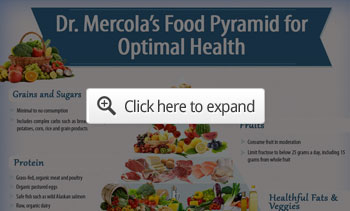First of all, cholesterol is NOT your enemy. In fact you could not live without cholesterol. Further more I have come to believe with all my heart that cholesterol does NOT cause heart disease. To add to that line of thinking, saturated fat is NOT your enemy either. The right kinds of fats in your diet contribute to your health. You must avoid trans fats, fractionated and hydrogenated oils (OR) partially hydrogenated oils, high fructose corn syrup, GMO altered corn (used in corn syrup) found as an additive in most convenient foods.
EXCERPT:
‘Low-Fat’ and Trans Fat—Two ‘Healthier’ Alternatives That Turned Out to Be Disastrous for Public Health
The cholesterol hypothesis turned into a boon for the processed food industry, which began creating all manner of “low-fat” and “low cholesterol” foods. Healthful saturated fats were also swapped for harmful trans fats, and ever increasing amounts of sugar.Sugar was later replaced by processed high fructose corn syrup, which is far cheaper to produce. Then, in 1995, the first genetically engineered corn was approved in the US, and today, most of the corn syrup used in processed foods is made from genetically engineered corn. This has its own set of potential hazards, over and above those associated with fructose.This chain of events offers even more support for the notion that it is the processed sugar (and grains if you are insulin and leptin resistant) in your diet—not saturated fat—that causes heart disease. Because despite the low-fat craze, rates of heart disease have stayed on a steady incline.While saturated fat consumption was dramatically reduced in most people’s diet, what didn’t decrease was sugar. On the contrary, fructose consumption has skyrocketed, courtesy of it being added to virtually every imaginable kind of processed food and beverage. (One of the reasons for all this added sugar is because when you remove fat, you remove flavor. Sugar and added flavorings are used to add flavor back in.)Consumption of trans fat, which for decades was touted as a healthier alternative to saturated animal fat, also radically increased, starting in the mid-1950s. Fortunately, the science showing trans fats to be FAR more harmful than saturated fat is now being officially acknowledged.On November 7, 2013, the US Food and Drug Administration (FDA) announced it is now considering removing partially hydrogenated oils—the primary source of trans fats—from the list of "generally recognized as safe" (GRAS) ingredients.6 This is the first step toward getting trans fats out of the American diet altogether. The World Health Organization (WHO) has also called for the elimination of trans fats from the global food supply.7
The Propagation of Flawed Science
Over the past 60 years, research has repeatedly demonstrated that there’s NO correlation between high cholesterol and plaque formation that leads to heart disease. Despite that, the saturated fat/cholesterol myth has been an extremely persistent one.As of 2010, recommendations from the US Department of Agriculture3 (USDA) call for reducing your saturated fat intake to a mere 10 percent of your total calories or less. Fat is abhorred to the point it was virtually removed entirely from the latest USDA “food pyramid,” now called “MyPlate”. Except for a small portion of dairy, which is advised to be fat-free or low-fat, fats are missing entirely.How could this be?This is the precise converse of what your body needs! Many health experts now believe that, for optimal health, you likely need anywhere from 50 to 85 percent of your daily calories in the form of healthful fats.In the 1960s, British physician John Yudkin was among the first to challenge Ancel Keys’ hypothesis, stating that SUGAR is the culprit in heart disease—not saturated fat.Alas, as described in the featured video, Keys was a politically powerful figure. He publicly discredited and ridiculed Yudkin, whose sugar hypothesis ended up fading into oblivion. By the 1970s, supporting the sugar hypothesis made you a quack in the eyes of the medical establishment.So rather than following the science, or at least having an open mind to investigate multiple hypotheses, public health recommendations simply followed the trail of the loudest, most politically astute bully...Just to give you a couple of recent examples, here are two 2010 studies—both of which negate Keys’ selectively biased findings and the cholesterol hypothesis as a whole, while supporting the sugar hypothesis in the development of heart disease:
- A meta-analysis4 that pooled data from 21 studies and included nearly 348,000 adults found no difference in the risks of heart disease and stroke between people with the lowest and highest intakes of saturated fat.
- Another 2010 study published in the American Journal of Clinical Nutrition5found that a reduction in saturated fat intake must be evaluated in the context of replacement by other macronutrients, such as carbohydrates.
When you replace saturated fat with a higher carbohydrate intake, particularly refined carbohydrate, you exacerbate insulin resistance and obesity, increase triglycerides and small LDL particles, and reduce beneficial HDL cholesterol.The authors state that dietary efforts to improve your cardiovascular disease risk should primarily emphasize the limitation of refined carbohydrate intake, and weight reduction.
Your Body Needs Saturated Fat and Cholesterol
Unfortunately, the FDA is still holding fast to its ignorant view on saturated animal fats, urging people to “choose products that have the lowest combined amount of saturated fat, cholesterol and trans fat.”8 The fact of the matter is, saturated fats from animal and vegetable sources provide a number of important health benefits, and your body requires them for the proper function of your:
Cell membranes Heart Bones (to assimilate calcium) Liver Lungs Hormones Immune system Satiety (reducing hunger) Genetic regulation One of the most important fats your body needs for optimal health is animal-based omega-3. Again demonstrating the abject failure of government guidelines to promote health, the 2011 “food pyramid” (My Plate) doesn’t mention omega-3 at all. In an effort to remedy this atrocious situation, I’ve created my own Food Pyramid for Optimal Health, which you can print out and share with your friends and family.Omega-3 deficiency can cause or contribute to very serious health problems, both mental and physical, and may be a significant underlying factor of up to 96,000 premature deaths each year. For more information about omega-3s and the best sources of this fat, please review this previous article. Besides animal-based omega-3 fats, other sources of healthful fats to add to your diet include:
Avocados Butter made from raw grass-fed organic milk Raw dairy Organic pastured egg yolks Coconuts and coconut oil Unheated organic nut oils Raw nuts such as, almonds, pecans, macadamia, and seeds Grass-fed meats
Sugar Is a Primary Driver of Heart Disease
Better Alternatives to Cholesterol-Lowering Drugs
Meanwhile, studies largely support the notion of using exercise as a cholesterol-lowering strategy. This makes sense, as being of a healthy weight and exercising regularly creates a healthy feedback loop that optimizes and helps maintain appropriate glucose and insulin levels through optimization of insulin receptor sensitivity. And, as I’ve mentioned before, insulin resistance—primarily driven by excessive consumption of refined sugars and grains along with lack of exercise—is the underlying factor of not only heart disease, but nearly all chronic disease that can take years off your life.One recent meta-review16 compared the effectiveness of exercise versus drug interventions on mortality outcomes for four common conditions, including heart disease. After reviewing 305 randomized controlled trials, which included nearly 339,300 people, they found “no statistically detectable differences” between physical activity and cholesterol lowering medications for heart disease.The two drugs included in the evaluation were statins and beta blockers. The only time drugs beat exercise was for the recovery from heart failure, in which case diuretic medicines produced a better outcome.Exercise was in fact found to be so potent a strategy that the researchers suggested drug companies ought to be required to include it for comparison when conducting clinical trials for new drugs! Previous research has also shown that exercise alone can reduce your risk of cardiovascular disease by a factor of three.17 You’d be wise to pay attention to how you exercise, though.Most people still think that in order to improve your cardiovascular fitness, endurance training is a must. But this is actually not true. Quite the contrary. High-intensity interval training, which requires but a fraction of the time compared to conventional cardio, has been shown to be FAR more efficient, and more effective.This type of physical activity mimics the movements of our hunter-gatherer ancestors, which included short bursts of high-intensity activities, but not long-distance running. This, researchers say, is what your body is hard-wired for. Basically, by exercising in short bursts, followed by periods of recovery, you recreate exactly what your body needs for optimum health. In the case of high intensity exercises, less really is more. You can get all the benefits you need in just a 20-minute session performed twice to three times a week.
Dan
HERE IS THE LINK TO THE ENTIRE ARTICLE:
http://articles.mercola.com/sites/articles/archive/2013/12/07/saturated-fat-cholesterol-heart-disease.aspx?e_cid=20131207Z1_DNL_art_1&utm_source=dnl&utm_medium=email&utm_content=art1&utm_campaign=20131207Z1&et_cid=DM36133&et_rid=359940890


No comments:
Post a Comment